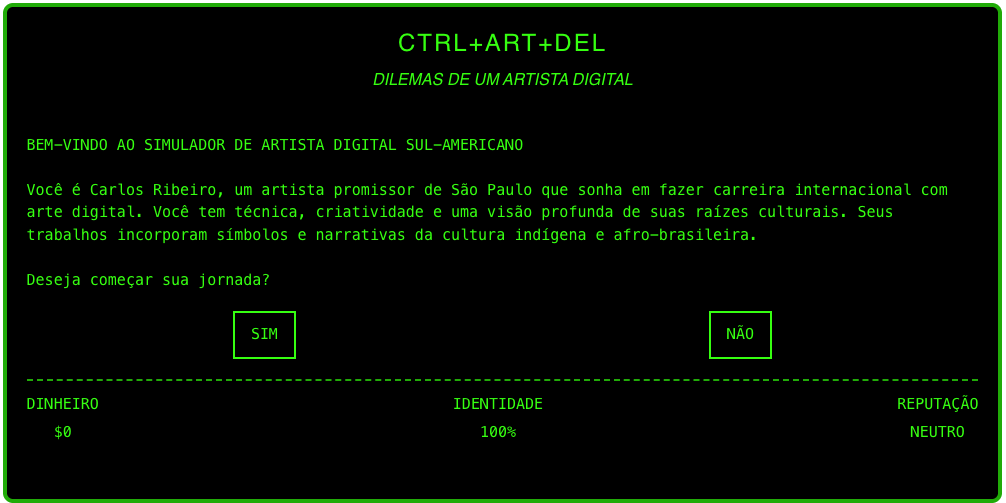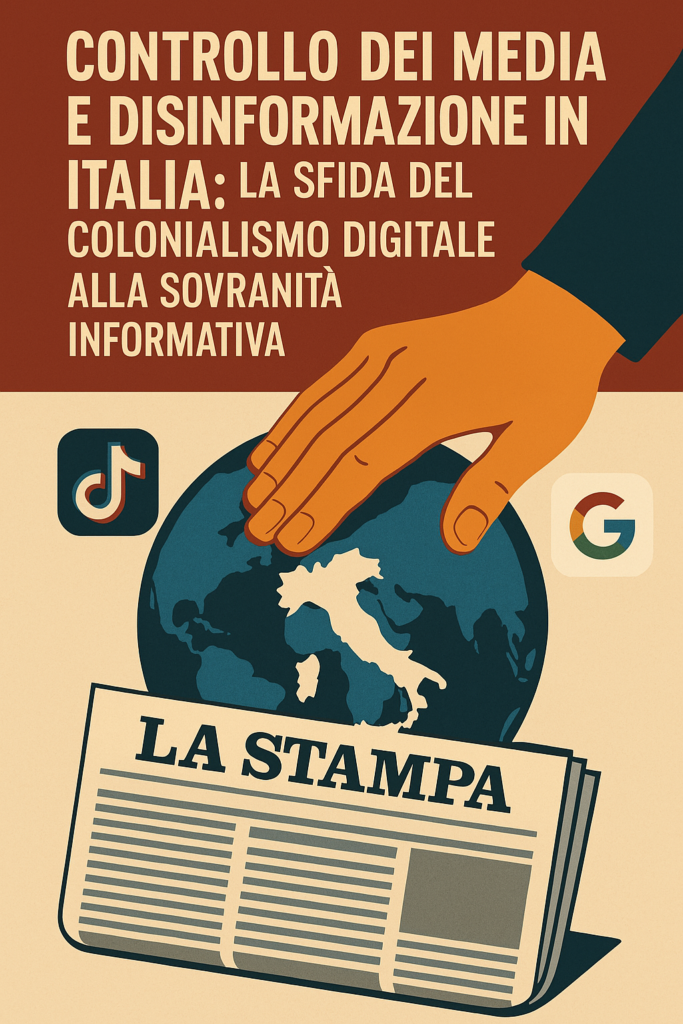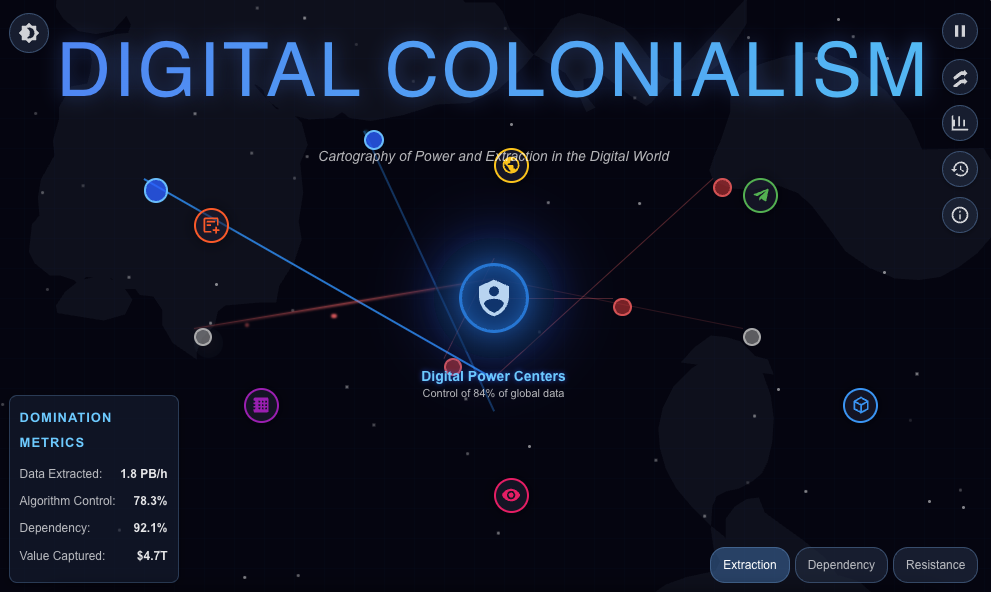🌎 CTRL+ART+DEL: Una Crítica al Colonialismo Digital en las Artes
CTRL+ART+DEL Dilemas de un Artista Digital BIENVENIDO AL SIMULADOR DE ARTISTA DIGITAL LATINOAMERICANO Eres Carlos Reyes, un prometedor artista de Bogotá que sueña con hacer carrera internacional con arte digital. Tienes técnica, creatividad y una visión profunda de tus raíces culturales. Tus obras incorporan símbolos y narrativas de la cultura indígena y afrolatina. ¿Deseas comenzar […]
🌎 CTRL+ART+DEL: Una Crítica al Colonialismo Digital en las Artes Read More »










